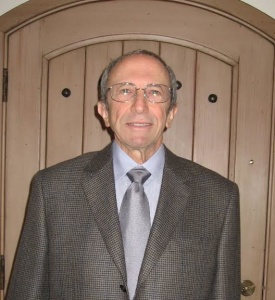Is there a big, new idea about immigration? Is there a way of looking at the issues beyond polarization? Is there a way of stabilizing the lives and the living conditions for the estimated 11 million illegal immigrants who hide in the shadows of society, living in fear, and costing the United States as much as $100 billion a decade in services and lost taxation revenue?
Is there a way of making those who employ undocumented workers, or those with dubious papers, from falling into unintended criminality themselves? Is there a “third way?”
The Immigrant Tax Inquiry Group (ITIG), based in Malibu, Calif., has been pondering the implications of taxation in the immigration debate. It was formally established as a not-for-profit foundation in 2010.
ITIG’s idea is big — a new front, in effect. It brings the immigrants out of the shadows, identifies them and gives them respect, while mitigating the impact on the rest of us. It also soothes those who want nothing to do with paths to citizenship.
As I understand it, the ITIG proposal is simple: cater to the illegal worker by issuing a 10-year, renewable work permit and taxing the employer at 5 percent of the wage for employing one of these workers. This would bring the undocumented worker, and his or her family, out of the shadows, provide revenue for their cost to society, and enable them to have dignity and security without citizenship. I can attest, from my own reporting, that not every immigrant wants citizenship and a vote.
The plan has been incubating for decades among a coterie of thinkers who want a practical humane solution to the problem.
Mark Jason, executive director of ITIG, knows something about immigrants. He was educated partly in Mexico and has worked there to improve conditions so fewer people will take the long walk north.
Over the years, Jason, has discussed his ideas with people as disparate as Ronald Reagan (a family friend, when Reagan was governor of California), Cesar Chavez, the National Farm Workers Association founder and leader, and recently retired Rep. Henry Waxman (D-Calif.).
Jason told me Reagan was interested, although this was before he became president and enacted his own immigration plan in 1986, which was straight amnesty. Chavez, he said, was more concerned with conditions in the fields than with the legal status of immigrants, partly because many farm workers come on contract. Waxman, who was a prolific legislator, liked Jason’s ideas and encouraged him to “think big.”
The ITIG plan is put forward in a detailed report on the Web, complete with revenue projections in graphs and charts.
Jason has worked as a tax consultant, an IRS agent and a farmer in Mexico, where he helped establish a honeydew melon farm near Puerto Vallarta. The farm has three missions: produce and export melons (350 tons in 2014), teach the local farmers better practices, and end the incentive to leave.
What frustrates Jason is the difficulty he has had in getting his ideas circulated in the immigration debate. Although the report by ITIG is detailed and clearly represents an important new dimension in the debate, it has not yet gotten traction in Congress nor, more surprisingly, among immigrant advocacy groups.
The plan, under which workers would get a 10-year work permit, get drivers licenses where states allow it, and travel freely between the United States and their country of origin. It would also convey the benefits enjoyed by American families on the immigrant family, such as education and the protections of the law.
Jason is using his own resources to push the plan. “It is not a panacea, but a practical way to get people out of the shadows and into the economy,” he says.
He sees his plan as the solution not to the whole immigration dilemma but as a recognition of reality; as a way of protecting society from the cost of a shadow population. Jason believes it creates an asset where there is a liability — but real legal status is not changed.
Jason told me his wife fell in love with him because “she said I liked to fix things.”
Immigration is a big job for a handyman, but Mark Jason is at work. — For the Hearst-New York Times Syndicate


 Follow
Follow
Leave a Reply